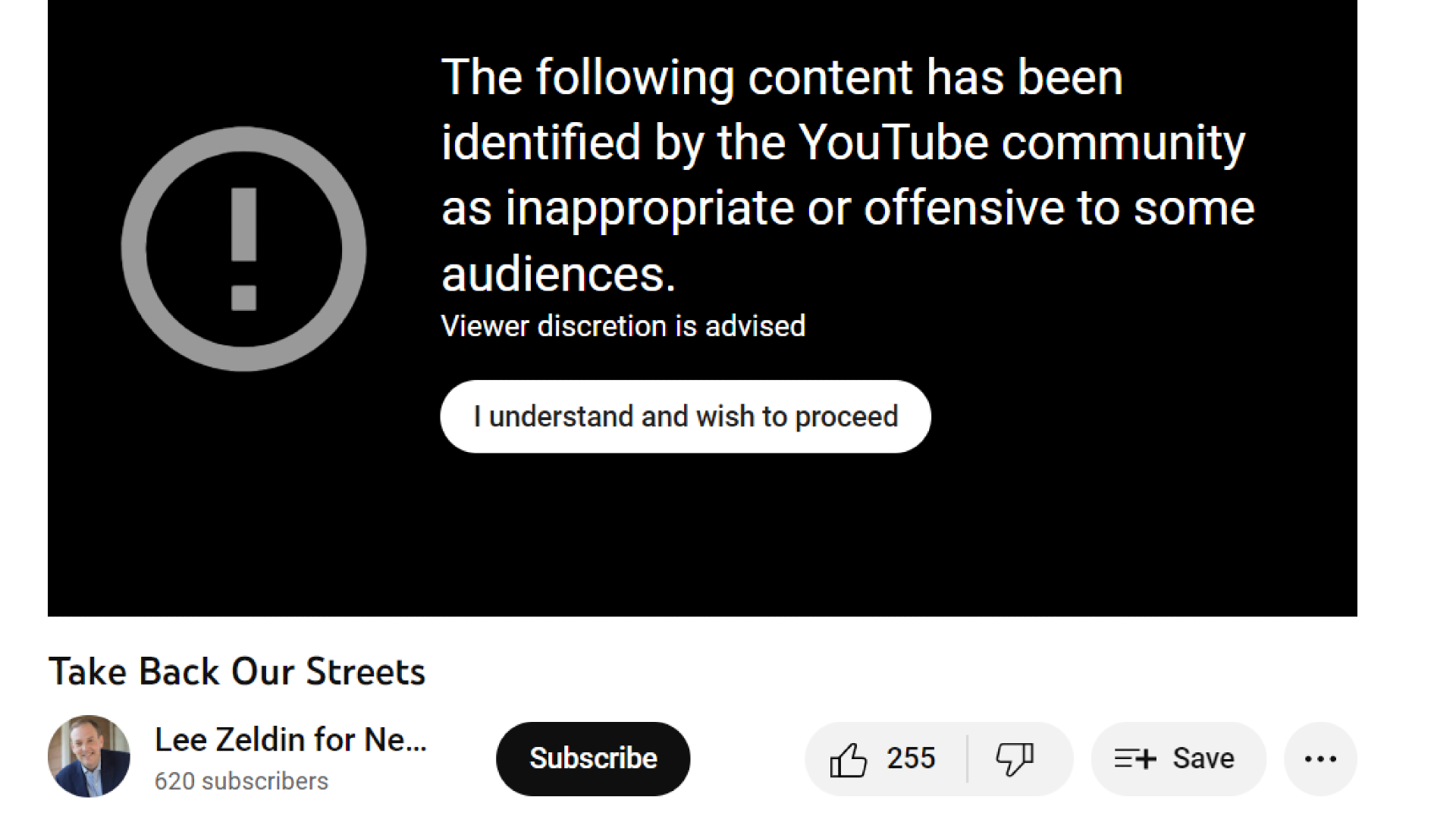Political Ads Stoking Crime Fears Are Hurting Victims and People of Color, Victim Advocate Warns
GOP's Zeldin Still Refuses to Remove Video Depicting a Dead Black Victim as a Criminal

Hyper-sensationalized political ads about crime are trapping victims of color and their families in a cycle of trauma and misrepresent the facts about crime, according to a national nonprofit dedicated to criminal justice reform and crime-survivor advocacy.
The assertion comes just weeks after the father of a police brutality victim demanded a public apology and retraction from New York’s Republican gubernatorial candidate for depicting his dead son as a criminal in a campaign ad.
For months, Republicans have run ad after ad rife in this election cycle with racialized dog whistles aimed at othering Democratic candidates of color and perpetuating old, false stereotypes that equate Black and Brown people with violence.
Rep. Lee Zeldin’s (R-NY) ad employs the same strategy adopted by many other GOP candidates – to drum up fear about crime among voters and portray Democrats and progressives as soft on the issue, even though crime has remained at relatively low levels in modern U.S. history. Now the leader of the Alliance for Safety and Justice (ASJ) tells TYT that survivors, family members, and entire communities are suffering as a result of misleading and fear-mongering, racist ads.
Zeldin’s ad in his gubernatorial race against Gov. Kathy Hochul (D-NY) flagrantly signals that Black and Brown people are the main perpetrators of crime.
The ad, released Sept. 14, shows what appear to be violent criminal acts while a voiceover advises viewers to “vote like your life depends on it… it just might.” It’s received tons of backlash on Twitter from many who consider the entire ad problematic – and YouTube even slapped a warning on it that viewers identified it as “inappropriate or offensive.”
The most controversial clip in the ad shows the last moments of Saheed Vassell, an unarmed Black man who was killed by police in 2018 while suffering a mental health crisis.
As Gothamist points out, Vassell is seen in the video pointing what police now know was a pipe at passersby in Brooklyn, seconds before he was shot five times by police. Despite Zeldin’s ad labeling it part of “Hochul’s New York,” in which crime is “getting worse,” the incident occurred three years prior to Hochul taking office and tells a false narrative of what gun crime actually looks like there.
ASJ’s co-founder and author of In Their Names, Lenore Anderson, told TYT, “[T]here's been a lot of research that's demonstrated that the more crime incidents are sensationalized – whether that's in politics or news media – the more fear people have.”
Anderson added that the fears viewers have as a result are “widely disproportionate to their actual likely vulnerability, their actual likelihood of being hurt.” She explains that sensational political ads are driving voter fears about crime, even if those fears are mismatched.
Zeldin’s ad attempts both to raise and capitalize on voter fears around crime, particularly in New York City. But despite Zeldin’s rhetoric and an ad littered with footage of firearms and apparent gun crimes, the NYPD reports that, while some crimes are up, shootings and murders are both down more than 30% compared to this time last year.
Anderson says the same kind of “hyper fear-driven” and “slogan-driven” calls for tough justice of the ‘80s and ‘90s which are playing out during this election season failed to address crime then, and will fail now.
Further, Anderson, whose organization supports crime survivors and their families, warns that sensationalizing crime might be effective clickbait, but “you're actually actively harming real people when you do that sort of sensationalized approach to crime policy.”
The kind of retraumatization described by Anderson is exactly what Eric Vassell, the father of Saheed Vassell, was expressing when he demanded that Zeldin take down his ad, which shows Saheed sandwiched between footage of multiple shootings on New York City streets.
According to Brooklyn Paper, Vassell said in a statement, “Seeing my son, Saheed Vassell’s, image in that terrible ad breaks my heart. It is painful and enraging that Mr. Zeldin is playing politics with my son’s image — criminalizing and dehumanizing Saheed, who was murdered by the NYPD.” Vassell added, “We demand that the ad be taken down immediately and that Mr. Zeldin issue a public apology for his disrespectful and misleading use of Saheed’s image for his personal political gain.”
Zeldin has done none of what Vassell asks and did not respond to TYT’s request for comment.
Anderson did not cite any specific campaign ads in her remarks. But when asked about Zeldin’s ad, she said, “the kind of case you're describing sounds just so similar to what so many victims have experienced.”
One of the goals of ASJ, according to Anderson, is to impress upon lawmakers the cycle of harm and trauma that comes from people of color constantly being used as symbols of crime. She says that it actually makes victims of color more vulnerable “because you're not giving visibility to people who are hurt by crime and violence.”
Anderson explains that the racialized misrepresentation in many political ads about crime exacerbates the “extreme racial discrimination that victims of color face when trying to get help, when trying to get access to compensation, to relocation, [and] to mental health therapy support recovering from crime.” She says, “Victims of color will report being discriminated against being denied support and assistance being treated as if they are a suspect ”
Moreover, Anderson says that the poor treatment of crime victims of color and barriers to accessing recovery resources is “a direct reflection of how racialized politics around crime have hurt victims, especially victims of color for generations.”
TYT Washington Correspondent Candice Cole was previously a correspondent and senior White House producer for the Black News Channel and has worked at a number of local news outlets. You can find her on Twitter @CandiceColeNews.
